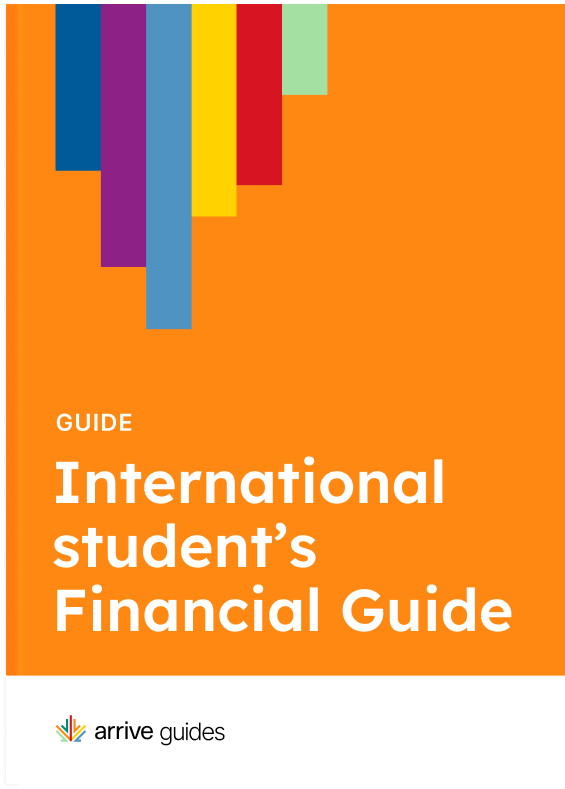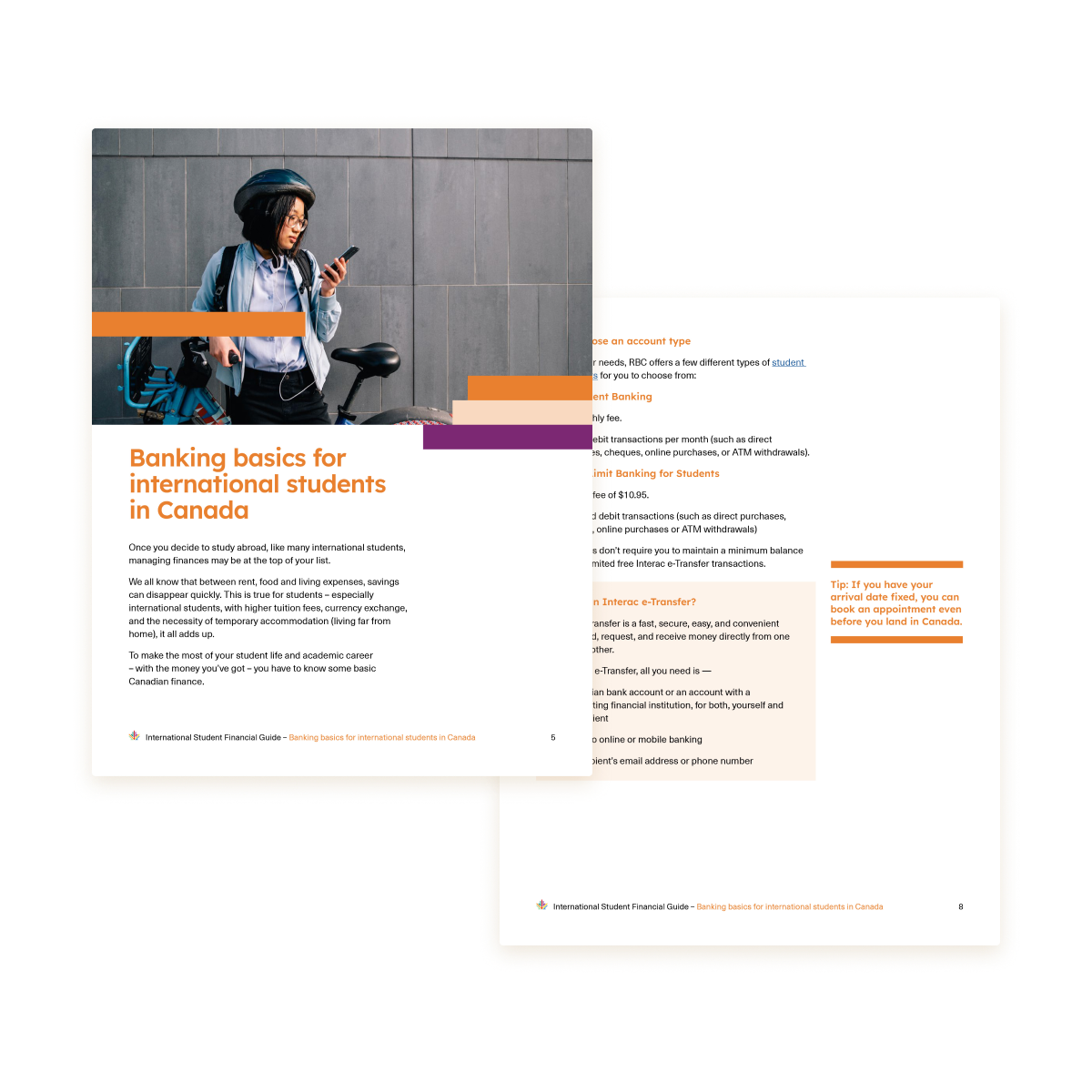
Financial Guide for International Students in Canada
Download the guide
Arrive | 88 Queen’s Quay, 10th Floor | Toronto, ON
M5N 0B6 | Canada www.arrivein.com
See our Privacy Policy, for more details or contact us if you have any questions.
For the several hundred thousand international students who study in Canada each year, managing finances, budgeting, and paying school fees are priority tasks. Having your finances under control will free up your mind and enable you to focus on your academics, so that you can graduate and start a successful career in your chosen field.
As an international student in Canada, your first step will probably be opening a bank account. This will then enable you to get a credit card and start building your credit history, to plan your income and expenses, and to take charge of your finances through budgeting.
This guide aims to educate international students about the basics of finance in Canada and provide essential resources as well as information that they can rely on to make confident financial decisions.
What you’ll find inside
- Banking basics in Canada
- Getting a GIC for your SDS application
- How to open a student bank account
- Credit scores and credit history
- How to budget for student life
- Working while studying
- Canadian tax returns for students
- Financial assistance for international students

Who is this guide for?
This guide is written for international students in Canada who want to manage their finances effectively. Whether you’re trying to understand banking basics or looking for ways to fund your education as an international student in Canada, this guide will help you make informed financial decisions.
So you’re coming to Canada to study?
Once you decide to study in Canada, like many international students, managing finances may be at the top of your list. We all know that between rent, food and living expenses, savings can disappear quickly. This is true for students – especially international students, with higher tuition fees, currency exchange, and the necessity of temporary accommodation (living far from home), it all adds up.
To make the most of your student life and academic career – with the money you’ve got – you have to know some basic Canadian finance, from bank accounts to credit cards. Planning your expenses and budgeting is a good way to keep your finances in check, avoid shocks, and potential student debt.
This guide will outline the different types of accounts available to international students, explain the importance of starting your credit history as a student, list the many advantages of budgeting for students, and run you through the steps to doing it effectively. If you are considering getting a part time job to earn some income during your studies, as well as gain work experience, you’ll want to know the legal and tax implications. Lastly, this guide will explain the differences between scholarships, grants, and bursaries, which can all help international students fund part of their education in Canada.
This finance guide will provide International Students in Canada with insights, information, advice and tips on some of the key must-know areas in Canadian finances:
- Budgeting: Know what to expect in terms of living expenses for your studies in Canada (they could be very different from your home country). Create a budget to manage these expenses so that you can focus on your studies without worrying about your finances.
- Banking in Canada: Learn the basics of banking in Canada, including how to open your student bank account.
- Credit and credit scores: Having a credit history or a credit score is essential for life in Canada. A good credit score can ensure you qualify for better interest rates on mortgages and other loans down the line. It’s never too early to start building your credit score, even as a student. Learn about how credit works, get tips on how to build a good credit history.
- Working as a student and taxes: Having a part-time job during your studies is a great way to cover some of your living expenses while gaining work experience. Learn what types of student jobs you are allowed to have, and how to file your taxes as a student.
